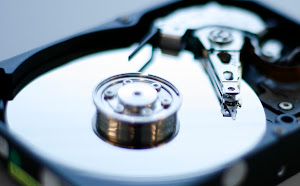Backup Problems
Preventing a data loss in practice turn outs to be quite difficult task because what happens when suddenly the PC does not start up any more? Or even worse: there is smoke coming out of your PC and you do not have a clue what has happened. This is when you realise that you have made a backup and you are one of those luckily persons who can restore his data.
Research has shown that backups are made ones or twice a year (on a consumer level). This really means that at the time your back up is a half year old the chances are that you have lost a considerable amount of data. Keeping your back up, up to date is one of the key elements in reassuring your data is safe guarded.
How to backup your files offline
It’s often in the way we use backup storage media and the significance of the meaning of the word back up that is the mean problem of selecting the right backup strategy. Using only one backup storage media limits the way you can backup your data and increases the change of losing that data while it’s stored on only 1 media. Having your data stored in 2 places gives you the change of restoring the second copy of the data when you lost you data. Now this comes with the challenge of keeping that second copy up to date. By developing the right backup strategy you will be able to that.
Setting up your offline Backup Strategy
The trick is to stick with one backup storage media that has a specific purpose within your back up strategy. In order to do this you can divide Backup storage Media in 2 main groups:
Active Data storage Media: This backup media is used for all data you use on a regular basis which needs updated frequently
Passive Data storage Media: This backup media is a copy of all your active data
Examples of usable Backup storage media:
Active Data Storage: cd-rw /dvd-rw blue ray/USB Sticks/ Ext Hard drives.
Passive Data Storage: Ext hard drives/Servers, Raid 1/5/ systems
Search for your suitable back up storage media that you can use as a passive or active back up method. Nowadays you can store your data on various storage devices, such as USB Memory sticks that can store data up to 16 GB. Also the modern MP3 players have built in space to store data files up to 80 GB. USB Memory sticks and MP3 players are easy to use and adaptable to all kind of PCs. The main advantage is that you can take it with you and download the files to your passive backup system directly. Also a CD/DVD RW can be an also a good method to back up your active data temporarily. When you use it as an active back up media it enables you to write and delete files or use it as a passive back up media only. After choosing your active / non active backup media you can implement your own way of back up your valuable data.
Advice: Always keep your important back up data in one place with one purpose. Use the right back up storage media and stick to the procedure on how to use that storage back media in the right way.
Implementing your offline backup strategy
After choosing you back up media that fits your requirements you have to set up your own procedure. In general active backups are made at least once a week or on a daily basis when need be and Passive backups are made in, for example, every 6 months.
Making a time frame of when you going to back up your files and administer them. Make a back up only when you need to or make a weekly back up from all your files. There are various decisions to make:
• What do we need to back up?(Files/ Programs)
• What kind of backup software do I want use?
• What amount of Data do we need to back up ( 1- 200 GB)
• What timeframe do we choose the back the data up?
• What kind of method is effective to back up my data?(USB, external hard disk, server)
When answering these questions you will find that you are developing your own back up strategy using the right media appropriate for you data storage needs.











1 comment:
Even online Data backup has been emerged. your lines are rigid true that regular data backup will keep away the chances to consult a data recovery service provider.
Post a Comment